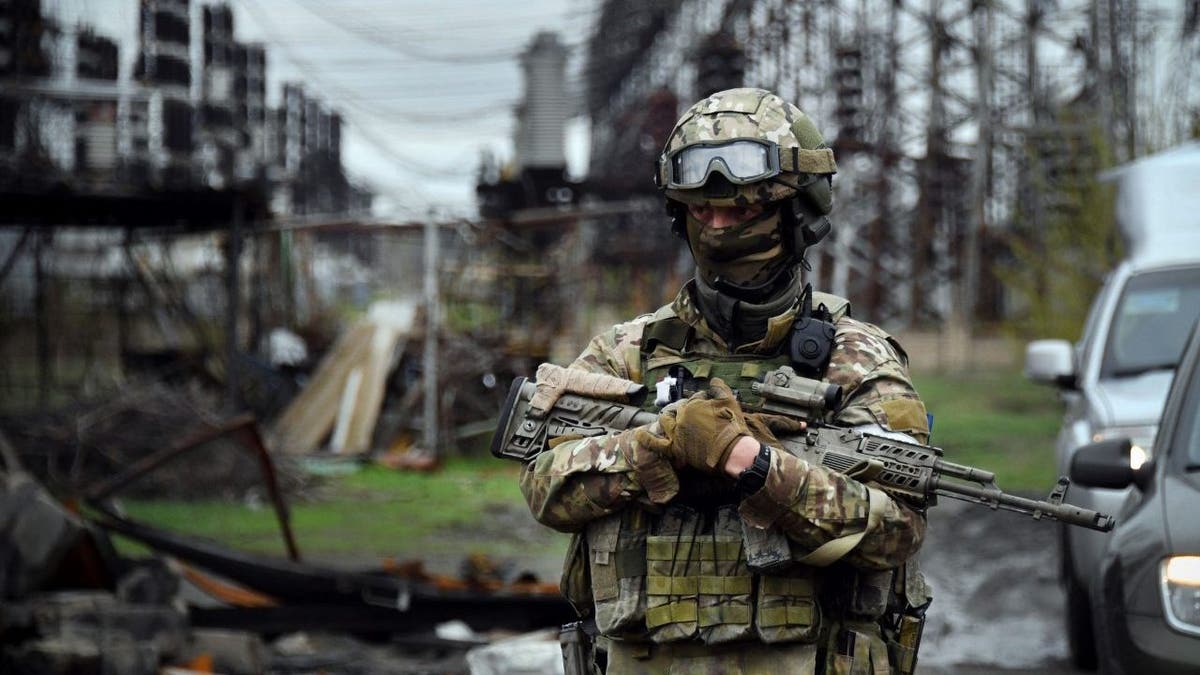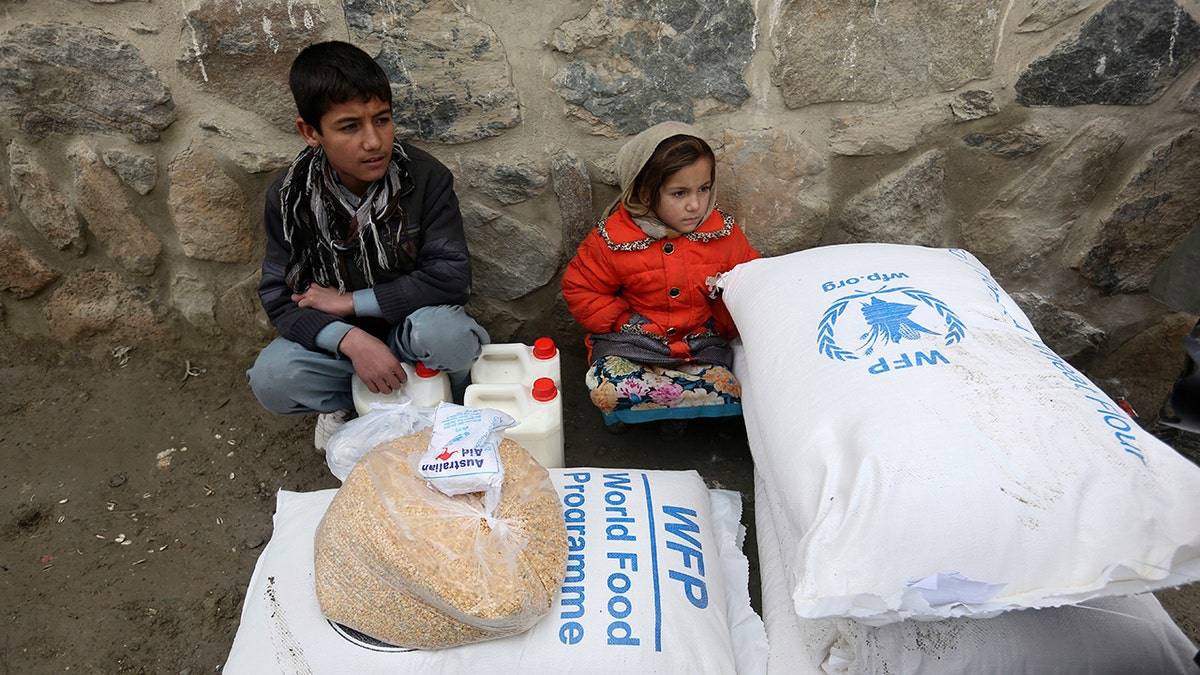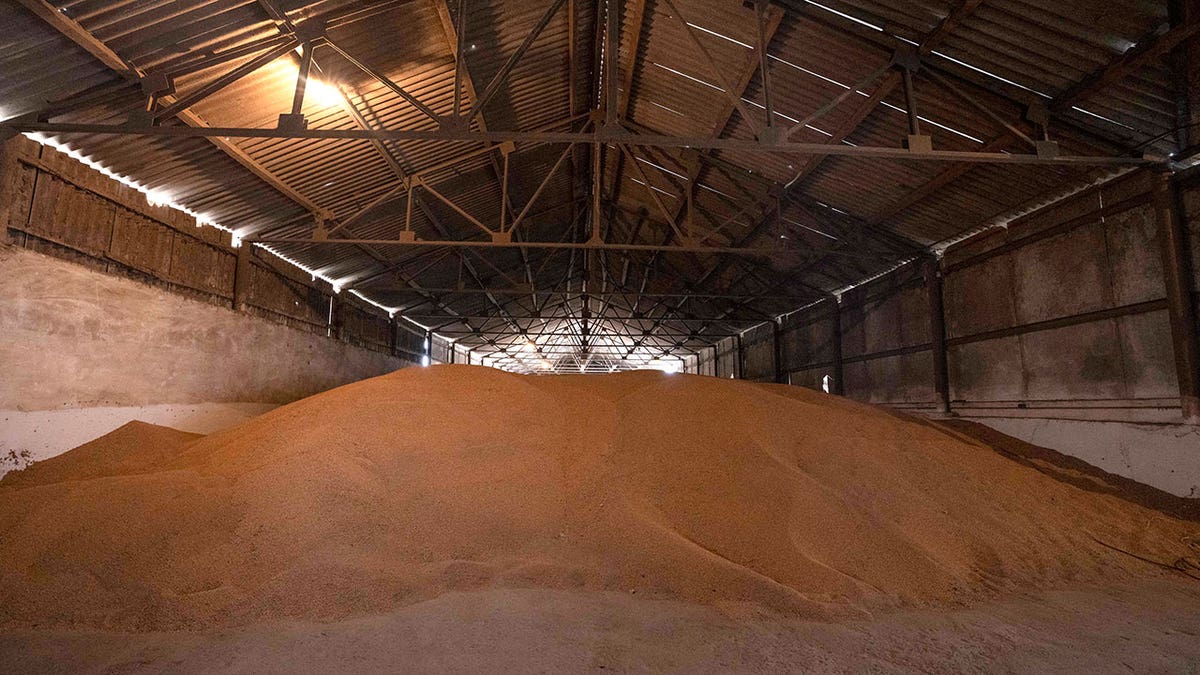USAID Chief says food shortage crisis will 'hasten transition' to green energy
Biden official Samantha Power told ABC's George Stephanopoulos that fertilizer shortages would push farmers to more green, "natural" solutions like manure and compost.
EXCLUSIVE: Russia's war in Ukraine has sparked a global crisis, and experts warn that hunger poses the greatest worldwide security threat as millions face famine and starvation.
"The conflict in Ukraine isn’t just increasing hunger conditions within the country or even within the region," Steve Taravella, senior spokesperson for the United Nations World Food Program (WFP), told Fox News. "The number of people who are on the brink of famine is now about 48.9 million in 43 countries.
"That is really dramatic."
Taravella said that roughly three-quarters of a million people are facing starvation in just five nations across the globe, including Ethiopia, Yemen, South Sudan, Afghanistan and Somalia.

In this picture taken April 13, 2022, a Russian soldier stands guard at the Luhansk power plant in the town of Shchastya. (Alexander Nemenov/AFP via Getty Images)
"These aren’t people who just don’t know where their next meal is coming from," he continued. "These are people who are really facing starvation."
These highly vulnerable nations have been embroiled in brutal conflicts, which has not only made providing humanitarian care more difficult but has also stunted global production.
"The link between conflict and hunger is really essential for understanding what is happening in Ukraine," Taravella said. "Bottom line: When people are fighting they’re not farming."
ZELENSKYY TAKES JAB AT PUTIN OVER G20 SUMMIT, HOPES 'NO OCCUPIERS' WILL BE IN ATTENDANCE
Global drought and the coronavirus pandemic had already created serious hunger conditions for the most vulnerable nations, but Russia’s war in the grain-rich sector of the world has pushed dangerous conditions into catastrophic realities.
"Hunger is soaring to terrifying levels, and the global situation just keeps on getting worse. Conflict, the climate crisis, COVID and surging food and fuel costs have created a perfect storm — and now the Ukraine war is piling catastrophe on top of catastrophe," David Beasley, head of the U.N. WFP, tweeted this week.
U.N. Secretary-General António Guterres echoed these comments last month when he told the Biden administration that global hunger levels had reached "a new high."

In this Jan. 24, 2017, file photo, children wait for transportation after receiving food donated by the World Food Program in Kabul, Afghanistan. (AP Photo/Rahmat Gul, )
"In just two years, the number of severely food insecure people has doubled, from 135 million pre-pandemic to 276 million today," he said. "More than half a million people are living in famine conditions — an increase of more than 500% since 2016."
But Russia’s war in Ukraine has brought a new reality to the alarming situation.
"It’s a global storm with a global impact," Taravella explained.
In 2019, Ukraine provided a staggering 42% of the world’s sunflower oil. In addition, it also provided 16% of the world’s corn exports, 10% of all barley exports, and nearly 9% of all wheat exports also came from Ukraine.
Kyiv also contributed 40% of all wheat exports the WFP received to assist vulnerable nations worldwide before it became the target of a deadly conflict.
As much as 25 million tons of grain remain holed up in storage facilities in Ukraine as Russian naval vessels hold an export blockade over ports located along the Black Sea.
Taravella explained that not only is there an urgent need to distribute the grain to assist with food demands now, but its circulation is also needed to ensure that any current grain harvesting can be stored.
Food prices have risen worldwide, but countries with the lowest GPD index will see the greatest spikes in costs at the market.
ZELENSKYY'S GLOBAL FOOD CRISIS PREDICTION MAY BE 10 WEEKS AWAY, UN OFFICIAL SAYS: 'SEISMIC'

A wheat warehouse belonging to Ivan Kilgan, head of the regional agricultural association village, in Luky village, in western Ukraine, March 25, 2022. (AP)
"The people who now have to cough up the dramatically greater amounts of money for food are the very people who can least afford it," the WFP official told Fox News.
This is largely due to the fact that countries in the Middle East and Africa have been highly reliant on Ukrainian exports and food assistance programs like the WFP – which is also incurring substantially greater costs.
Before the war, Lebanon received 80% of its wheat imports from Ukraine while Tunisia, Libya and Pakistan all received nearly 50% of their wheat needs from the former Soviet nation.
Iraq imported nearly 88% of its sunflower oil from Ukraine, while India and Egypt relied upon Ukraine for 76% and 54% of their sunflower oil needs, respectively.
Experts are concerned the food crisis will not only lead to a spike in global hunger but pose a major security threat worldwide.
CLICK HERE TO GET THE FOX NEWS APP
"One of the drivers of the conflict in what we now call the Arab Spring was the inability to get affordable food. When people are hungry, they become desperate and they turn to desperate measures," Taravella said. "We are all very nervous that as the numbers of hungry grow around the world, political instability could grow with it.
"The last thing the world needs is more conflict. How many more countries in conflict can the world sustain?"








































